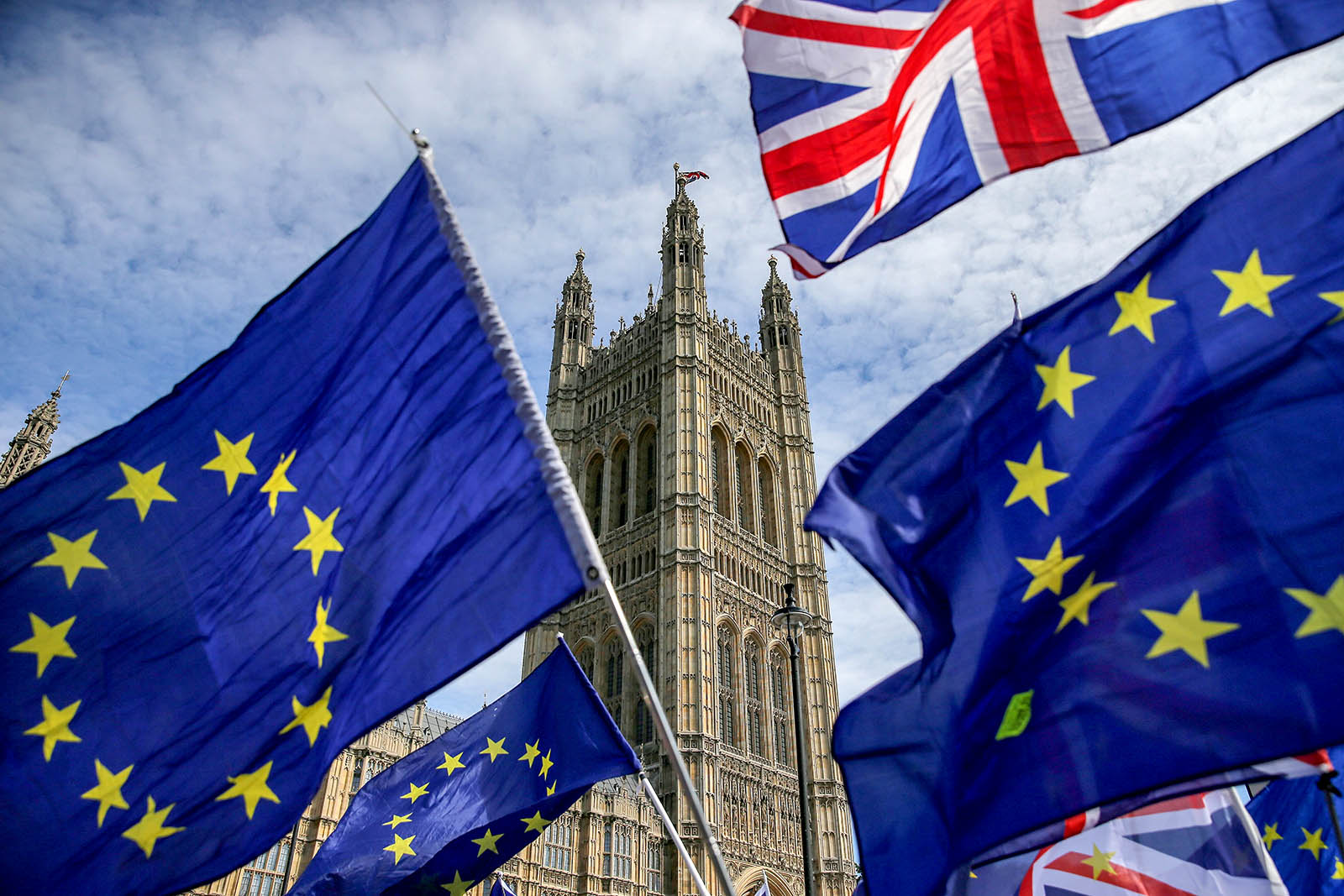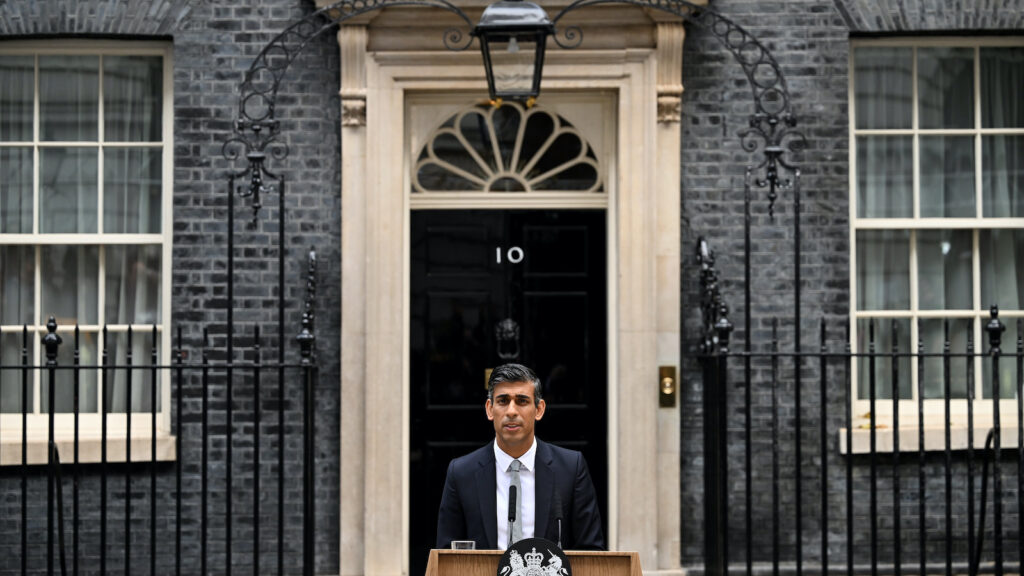The Long-Term Impact of Brexit: Costs on Both Sides

Demonstrators wave European Union and Union flags during a protest against Brexit outside of the Houses of Parliament in central London. In the long-term, different trade standards will lessen or heighten the costs of Brexit.
Photo: Daniel Leal-Olivas/ AFP/Getty Images
When the United Kingdom leaves the European Union, higher barriers to trade, capital flows, and labor mobility will affect output and jobs not only in the UK, but also in the remaining 27 EU member states. Since Brexit means both parties will withdraw from a frictionless economic relationship, there will be costs on both sides, as our new study suggests.
Bonds between the EU and the UK run deep: The UK is among the EU-27’s largest trading partners, accounting for about 13 percent of its trade in goods and services. Beside bilateral trade links, there are substantial supply chain trade links between the EU-27 and the UK that involve several countries.
Financial linkages are strong, with gross bilateral capital flows totaling around 52 percent of EU-27 GDP in 2016. Migration flows have also strengthened over time and are very large for some countries, such as Ireland.
Reversing Integration Will Hurt Long-Term Output and Jobs in the EU
A constructed index that captures all these channels of integration indicates growing EU-UK bilateral integration over the past 30 years. The reversal of that integration following Brexit will hurt income and employment in the EU.
If the UK and the EU settle on a standard free trade agreement—with low tariffs on goods trade but with higher nontariff barriers—we estimate that EU-27 real output will be lower by 0.8 percent and employment by 0.3 percent in the long run than in a no-Brexit scenario.
If the parties default to WTO rules, the decline in real output relative to a no-Brexit situation would be even larger, at 1.5 percent in the long run, and employment would fall by 0.7 percent. Under a relatively benign “Norway” scenario (labeled EEA in the graphic below), however, where access to the single market is preserved while membership in the customs union is lost, the decline in output and employment for the EU-27 appears negligible.
Brexit-Related Hit: Country-by-Country Estimates of the Trade Impact
The more any country trades with the UK, the larger the Brexit-related hit to its output will be. To shed light on this, we used a country-specific framework to study the direct and indirect trade effects from higher tariffs and nontariff barriers for both goods and services trade. The simulated effects are relatively smaller compared to the estimates presented above, as only trade links are accounted for in the model framework.
We find that EU-27 real output would be lower by 0.2 percent in the long run under the FTA scenario than under a no-Brexit scenario. The hit to Ireland’s income would be the largest in the EU‑27 (about 2.5 percent compared to the no-Brexit scenario), followed by the Netherlands, Denmark, Belgium, and Czech Republic.
These estimated impacts relative to a no-Brexit scenario increase in the event of a default to WTO rules, reaching an output loss of 0.5 percent for the EU‑27 and an output loss of 4 percent for Ireland, given the substantial increase in both tariff and nontariff barriers.
Our study does not look at the effect of uncertainty about the future relationship between the EU-27 and the UK or the transition to the new relationship. It focuses entirely on the long-term impact, when all parties have fully adjusted to the new relationship. The ultimate consequences will take years to materialize and will depend on the eventual deal between the EU-27 and the UK.
This piece originally appeared in the IMFBlog.













